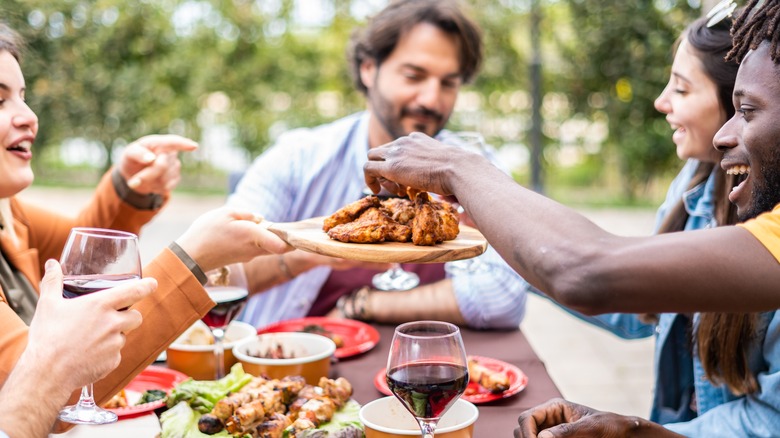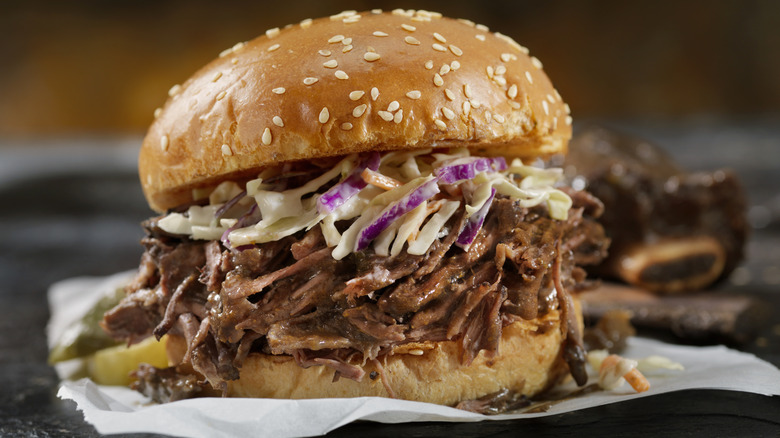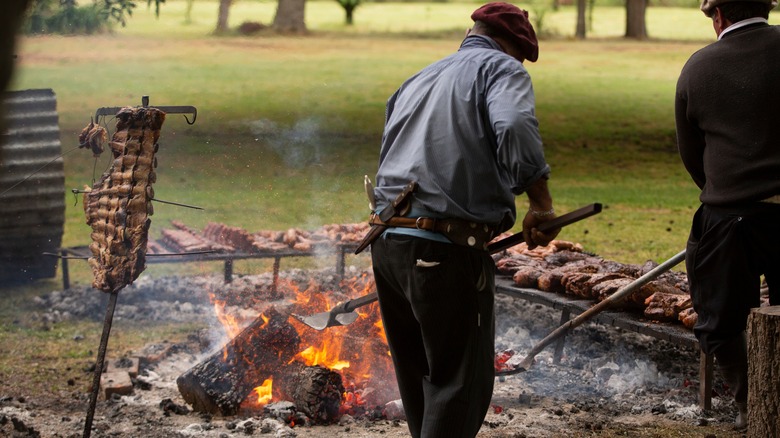What Sets Arkansas Barbecue Apart From Other Regional Styles
Meat smoked low and slow, slathered in a punchy signature sauce, and served alongside traditional sides: While the specifics vary from region to region, every style of American barbecue follows the same general formula no matter where you are, and each style is delicious in its own right. With deep roots in Black and Indigenous American culinary traditions, barbecue is a popular cuisine that has grown across cultural and geographic boundaries, becoming as varied and hotly contested as the nation from which it hails.
While most people think of the South when they think of barbecue, there are distinct styles peppered across the country. Often overlooked in the debates of which style is best or most traditional is Arkansas — where barbecue has been since at least the early 19th century. While not identical across the state, the quintessential definition of Arkansas' barbecue is "pork — either sliced, chopped, or pulled — piled onto either a bun or two slices of plain white bread" (via the Encyclopedia of Arkansas).
Arkansas barbecue is as varied as the regional identity of the state, gleaning influence from the Southern, Midwestern, and Southwestern traditions it's wrapped up in. But the resistance to homogenization is part of the identity. Delta, Southwest, and Ozark barbecues all have their own space to shine in Arkansas. Although cooking methods, sauce styles, and topping choices change across the state, don't skip the most collectively beloved Arkansas barbecue sandwich condiment: coleslaw.
Breaking down Arkansas' barbecue styles
How do things differ in the Delta, Southwest, and Ozark regions? Put simply: in almost every way you could imagine.
Delta barbecue comes from what was once the land of cotton but, in recent history, has come to favor crops like rice, wheat, and sorghum instead. With land allotment being primarily dedicated to crops, cattle took the back burner — and this preference can be traced through to their barbecue, too. Pig, poultry, and other small game are pit-smoked and covered in a thin, vinegar-based hot sauce and served on bread with coleslaw or straight up.
Southwest barbecue, found in the Ouachitas and Lower Arkansas, is strongly influenced by Texas tradition — though meat is smoked over hardwoods like hickory, oak, or pecan, not mesquite. They prefer a thicker, sweeter sauce here, and you're likely to see beef included on the menu. You may also find beans as a side dish. Cooked in a pot under the smoking meat, the beans catch drippings and take on a wonderful smokey and savory flavor.
More remote than other parts of Arkansas, the Ozark region has a legacy of curing and smoking meats as a means of preservation. Turkey, sausage, ham, and beef smoked with fruitwoods are common. These wonderfully smokey meats are topped with a thick barbecue sauce inspired by the Kansas City style.
Origins and significance
Arkansas is close to many states with strong barbecue traditions, including Texas, Kentucky, Missouri, Tennesee, and Alabama. Who could be surprised to learn these styles had migrated to Arkansas and mingled into something new? According to some, the state held its first barbecue as early as 1814. While barbecue wasn't unique to them, Arkansas established itself in the tradition, blending external influences, regional agriculture, and local tastes into a culture all its own.
The methods and flavors changed from one place to another, but across the state barbecue quickly became a social event that strengthened and supported the community. As early as 1840, barbecues became a popular way to gather the community for political rallies and fundraisers — even a way for white citizens to support their Black neighbors during the Jim Crow era (per the Encyclopedia of Arkansas). Jones Bar-B-Q in Marianna is believed to be not only the oldest barbecue restaurant — but also the first racially integrated institution in Arkansas. It is also "the oldest black-owned restaurant in continuous operation in the South; a cool neighborhood barbecue joint that has been in business for over 100 years" (via Arkansas.com).
No matter how passionately we may debate over which Arkansas barbecue style is best, we can all agree that, at its core, it's a delicious and delightful force for good. Regardless of the protein, the cooking method, or the sauce you like best, there's something delicious awaiting you. Grab some extra napkins and dive in.



